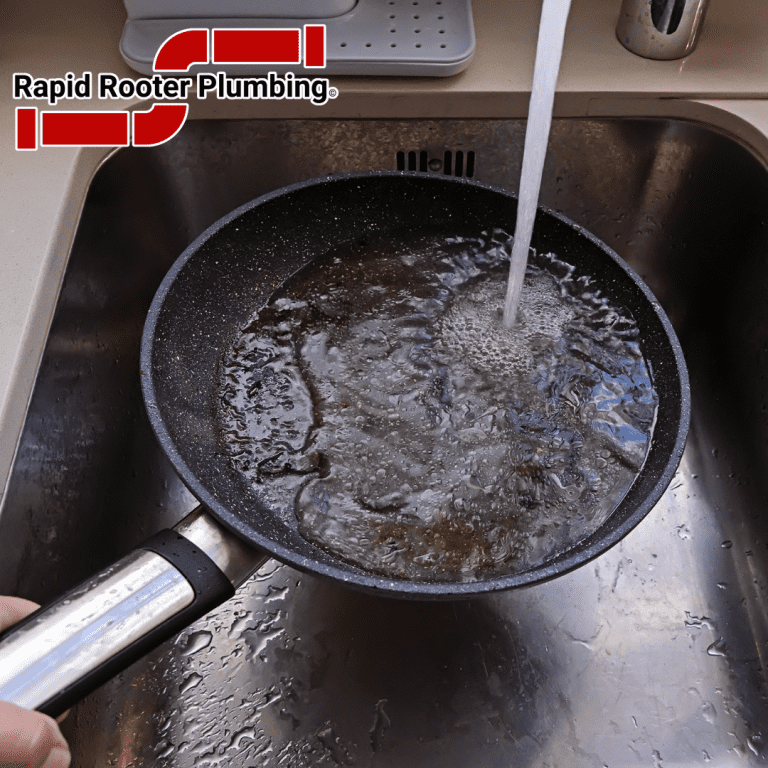At Rapid Rooter Plumbing, one of the most frequently asked questions we get from homeowners is whether it’s okay to pour grease down the sink. The short answer is no, and here’s why.
Why You Shouldn't Pour Grease Down the Sink
Pouring grease, fats, and oils down your sink might seem harmless, especially when they are in liquid form. However, this common practice can lead to significant plumbing issues. When grease cools, it solidifies and adheres to the walls of your pipes. Over time, this buildup can restrict water flow and cause severe blockages.
The Science Behind Grease Solidification
Grease, like other fats and oils, changes its state based on temperature. When you pour hot grease down the sink, it may flow easily in its liquid state. However, as it cools, it solidifies. Even if you run hot water afterward, the grease can still solidify further down your plumbing system where the water temperature drops. Here are a few key points to consider:
Common Myths About Grease Disposal
Safe Disposal Methods for Grease
To avoid costly plumbing repairs and protect your pipes, follow these safe disposal methods for grease:
Regular Maintenance to Prevent Grease Buildup
Even with careful disposal, some grease might still make its way into your plumbing system. Regular maintenance can help prevent significant issues:
Conclusion
Pouring grease down the sink can lead to serious plumbing problems due to the solidification of grease when it cools. This practice can cause blockages, restrict water flow, and even contribute to fatbergs in the sewer system. To protect your plumbing and avoid costly repairs, always dispose of grease properly and consider regular maintenance. At Rapid Rooter Plumbing, we are here to help you keep your plumbing system in top condition. If you have any questions or need professional assistance, don’t hesitate to contact us.

Request a Service
One of our team members will assist you